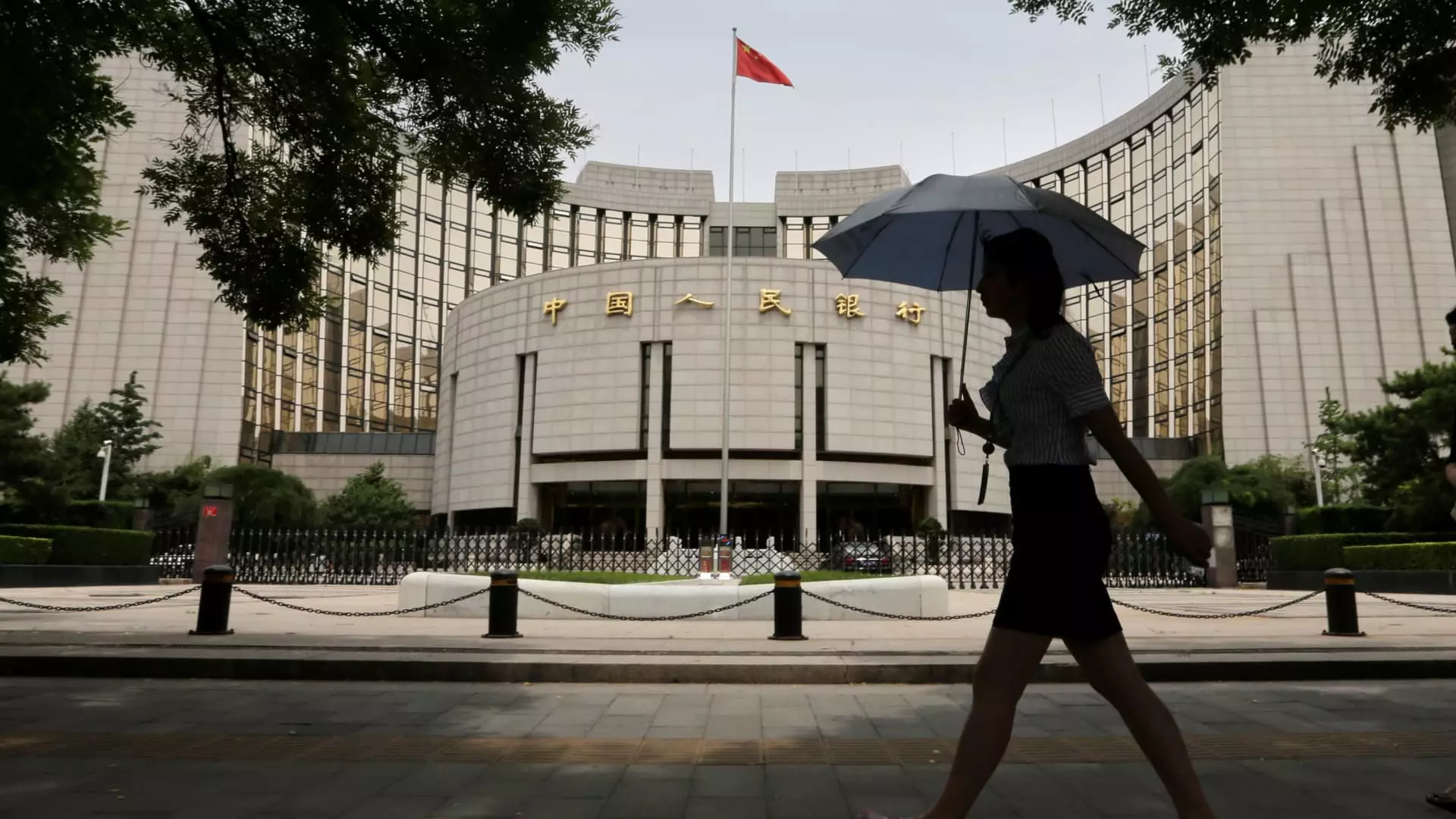The Federal Reserve of the United States is on the verge of a significant policy shift, as it looks to ease its stringent interest rate controls. This anticipated change could have far-reaching consequences, particularly for the Chinese economy and its stock market. Analysts are now suggesting that a shift towards lower interest rates in the U.S. might encourage more investment in Chinese equities. According to HSBC analysts, this phase of monetary easing could potentially catalyze a reevaluation of growth sectors within China’s market, revealing a more favorable outlook for stocks associated with technology and consumer goods. The idea here is that as American monetary policy shifts, it may allow for a wider margin of investment opportunities within emerging markets like China.
Growth sectors, such as semiconductors and consumer electronics, are projected to lead the charge in performance should the U.S. indeed reduce interest rates. The HSBC analysis points out that these sectors have already shown impressive earnings growth in the first half of 2024, positioning them optimally for future gains. Analyst Steven Sun emphasizes that the crux of investment appeal lies in earnings growth rather than just the effects of monetary policy adjustments. This growth narrative provides a strong backdrop against which global investors might reassess their positions in Chinese equities, particularly given the rising valuation premiums that some sectors may command.
For global institutions, the relative attractiveness of U.S. Treasurys over Chinese equities has been shaped largely by prevailing high interest rates in the United States. There has been a noticeable shift towards American stocks, particularly in technology, as seen in Nvidia’s remarkable stock increase amid the AI boom. This tells us that U.S. companies have effectively captured investor attention, thus overshadowing the potential of Chinese companies, despite their competitive valuations. Moreover, recent investments, such as a Chinese city’s allocation to a fund tracking the Nasdaq-100, reflect a rising interest in American stocks, which may complicate the recovery for Chinese equities.
Despite the potential benefits of U.S. monetary easing for China’s stock market, some experts caution that simply lowering rates won’t be enough to revitalize investor interest. According to Laura Wang, chief China strategist at Morgan Stanley, any recovery in the Chinese equity market will depend primarily on tangible business fundamentals and a shift in macroeconomic conditions. Thus far, Chinese stock valuations have shown a concerning disconnect from the movements in U.S. Treasury yields in 2024, signaling that other factors need to be addressed to foster a more committed pathway for growth in Chinese stocks.
China is grappling with unique challenges as it tries to navigate economic recovery. The country’s consumer price index, focused on core inflation figures, has demonstrated minimal growth, indicating prevailing deflationary pressures that may deter consumer spending. Former People’s Bank of China governor Yi Gang emphasized the appropriate measures against deflationary trends, highlighting that a lack of spending confidence directly affects the economic landscape. A cautious sentiment among households about expenditure can stifle growth, even if interest rates are lowered.
The hesitance extends to corporate capital spending as well. Notably, there’s been a 4% decline in capital expenditures during the first half of 2024, with sectors like industrials and renewables lagging behind. While certain segments, particularly internet and consumer firms, reported better-than-expected earnings, the broader landscape remains worrisome. James Wang from UBS has forecast a modest 7% growth in earnings per share for the MSCI China index this year; however, the overarching sentiment remains cautious, leaving much to be desired from the financial ecosystem.
As Beijing evaluates its strategy on interest rates vis-à-vis U.S. monetary policy, it’s clear that lower borrowing costs could provide some respite for the Chinese stock market, especially if the U.S. economy remains stable. Analyst predictions indicate that a reduction in U.S. interest rates could potentially lead to impressive returns for Chinese markets in the following year. However, this optimism hinges squarely on China’s ability to improve underlying economic conditions, including consumer confidence and spending.
While the anticipated changes to U.S. interest rates may offer a glimmer of hope for Chinese equities, the reality is that without substantive improvements in economic fundamentals and growth catalyzed from within, the Chinese market remains at a crossroads.

